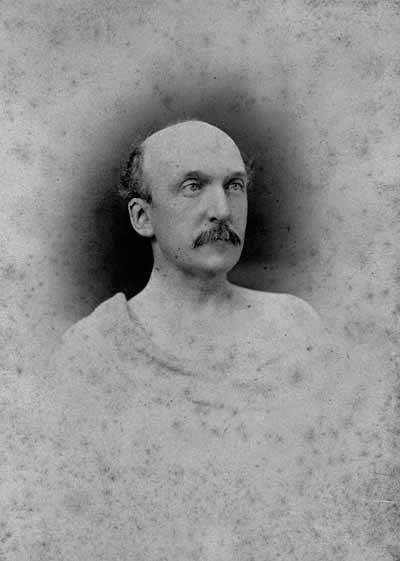Nicholas Flood Davin National Historic Person (1843-1901)
The Historic Sites and Monuments Board of Canada is reviewing designated national historic persons, events and sites for their connection to the history and legacy of the residential school system. This review responds to the Truth and Reconciliation Commission’s Call to Action 79, which calls on the federal government to commemorate the history and legacy of residential schools.

© William James Topley / Library and Archives Canada / PA-195870
Nicholas Flood Davin was designated as a national historic person in 1947.
The Historic Sites and Monuments Board of Canada reviewed this designation in 2023. The following aspects of Davin’s contributions to Canadian history were declared of national historic significance.
Reasons for designation
Nicholas Flood Davin was the author of the “Report on Industrial Schools for Indians and Half-Breeds” of 1879, known as the Davin Report, which, at the request of the government of Sir John A. Macdonald, investigated the American system of Indigenous boarding schools as a possible model to adopt in the Northwest. His report recommended the federal funding of existing boarding schools at Christian missions and the establishment of new federally-funded, church-run industrial boarding schools. These recommendations aimed to remove Indigenous children from their families and strip them of their cultures. His report reflects the 19th century settler beliefs that Euro-Canadian culture and Christianity were superior to Indigenous cultures, traditions, and spiritual beliefs, and that these Euro-Canadian values should be imposed on Indigenous Peoples by means of assimilation and colonization. The Davin Report was embraced and endorsed by the government and served as a foundational document, legitimizing the government’s Indian Residential School policy in the late 19th century, with devastating consequences for Indigenous Peoples in Canada.
His long career in journalism included an influential role in the Prairie West as the first editor of the Regina Leader
He served as a prominent Western politician, representing the federal riding of Assiniboia West from 1887–1900. His connection to Macdonald resulted in his appointment to several inquiries and royal commissions, including as secretary to the Royal Commission on Chinese Immigration, which recommended a race-based head tax levied on Chinese immigrants.
Review of designation
Reviews are undertaken on an ongoing basis to ensure that designations reflect current scholarship, shifts in historical understandings, and a range of voices, perspectives and experiences in Canadian society.
In 2023, this designation was reviewed due to colonial assumptions in the commemorative plaque text. The original text, approved in 1977, highlighted Davin’s career as an author, founder of the Regina Leader, and Western Canadian politician. The original text did not reference his role as the author of the foundational document for legitimizing the government’s Indian Residential School policy in the late 19th century. The original plaque text also did not reference the Royal Commission on Chinese Immigration’s recommendation to impose a race-based head tax on Chinese immigrants.
New reasons for designation were developed that describe the recommendations of the Davin Report and the devastating impacts of this report on Indigenous Peoples. The new reasons also make note of the recommendations of the Royal Commission on Chinese Immigration. The original plaque is no longer present. A new plaque will not be prepared as the limited text of a plaque does not allow for adequately communicating this complex history.
Source: Historic Sites and Monuments Board of Canada, Minutes, December 2021; June 2022.
The National Program of Historical Commemoration relies on the participation of Canadians in the identification of places, events and persons of national historic significance. Any member of the public can nominate a topic for consideration by the Historic Sites and Monuments Board of Canada.